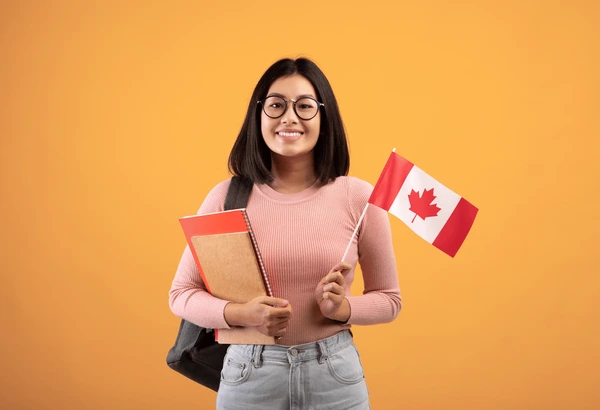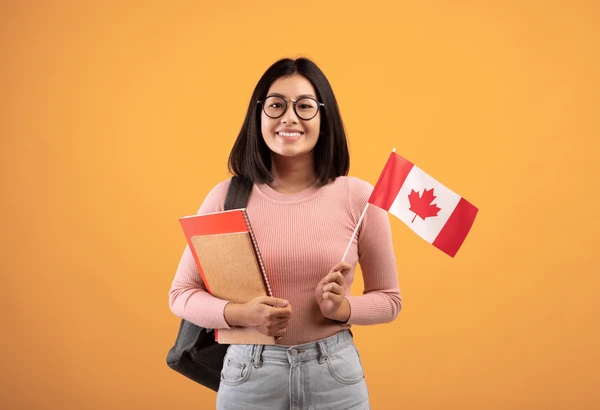


In recent months, Canada has introduced several measures to regulate the entry of international students, including those already enrolled in Canadian educational institutions. A significant development occurred in January when Immigration Minister Marc Miller announced the government's implementation of a two-year intake cap on applications for international student permits. Canada is expected to approve approximately 360,000 study permits for 2024. The authorities will decide the cap for 2025 at the end of this year.
The recently introduced reforms aim to promote sustainable population growth in Canada, enhance system integrity, and foster a positive experience for international students.
Canada has unveiled four significant changes affecting international students. These include the implementation of a cap on study permit applications, the requirement for a provincial attestation letter, the extension of the Post-Graduation Work Permit for Master's degree graduates, restrictions on eligibility for public-private partnership college programs, and modifications to open work permit eligibility for spouses of international students.
Let us explore the five significant changes in detail:
In a landmark announcement on January 22, 2024, the federal government unveiled a pivotal two-year cap on study permit applications, marking a significant shift in policy. The cap aims to regulate the influx of international students, with an estimated issuance of approximately 360,000 new study permits in 2024—a substantial 35% decrease from the previous year.
Additionally, each province and territory will enforce a cap on the enrollment of new international students in undergraduate programs. Provinces and territories can allocate study permit caps to universities and colleges within their jurisdictions.
The reduction in study permits is expected to be more severe in Ontario, British Columbia, and Nova Scotia, leading to increased competition for students interested in these provinces.
These caps will not apply to international students pursuing master's or doctoral degrees in Canada. Furthermore, existing international students seeking to renew their Canadian study permits will remain unaffected by these changes.
International students applying for post-secondary education at the college or undergraduate level must submit a provincial attestation letter (PAL) and their study permit application. The IRCC will reject applications lacking a PAL unless exempted. This letter indicates that the student has secured accommodation within a provincial or territorial allocation under the national cap. Authorities have urged provinces and territories to establish plans for issuing PALs by March 31, 2024.
Those who require a provincial attestation letter (PAL) include:
Specific categories of international students are exempt from the requirement to submit a Provincial Attestation Letter (PAL) when applying for study permits in Canada. The cap's implementation exempts international students who submitted their applications to the IRCC before January 22 at 8:30 a.m. Similarly, it exempts those who have already received approval for a study permit and intend to travel to Canada for an upcoming program.
Students having exemption from PAL requirements include the following:
Graduates with Master's degrees will benefit from an extended PGWP, allowing them more time to gain valuable work experience in Canada after completing their studies.
Effective February 15, graduates from Master's programs lasting less than two years and meeting PGWP eligibility criteria will qualify for an extended 3-year work permit. For programs other than Master's degrees, PGWP duration will continue to match the program length, with a maximum limit of 3 years.
Authorities have revised the eligibility criteria for public-private partnership college programs, potentially restricting access to these collaborative educational opportunities for some international students.
In some provinces, public colleges are authorized to license their curriculum for delivery through affiliated private colleges. This arrangement allows students to physically attend a private college while earning a diploma from a public institution. However, concerns are arising about the quality of education and support services these institutions provide, with the Auditor General of Ontario highlighting issues related to oversight.
To address these concerns, IRCC has implemented a modification to limit PGWPs for these programs. This change aims to reduce international student enrollment in these programs by removing the option to apply for a PGWP. These actions aim to address issues where some institutions prioritize profit over educational quality, thereby safeguarding students' interests and maintaining the integrity of Canada's education system.
Authorities will revise the eligibility criteria for open work permits for international students' spouses and common-law partners in the coming weeks. This change may affect spouses' ability to work in Canada while their partners pursue their studies.
Until 2023, spouses of international students enrolled in eligible full-time Canadian study programs were entitled to spousal open work permits (SOWPs).
However, eligibility will now be limited to spouses and common-law partners of students exclusively enrolled in Master's, Doctoral, and professional degree–granting programs like law and medicine. Spouses of international students in undergraduate and other college programs will no longer qualify for open work permits.
In conclusion, Canada's recent adjustments to its student visa rules signify a proactive approach toward enhancing international students' overall experience and opportunities. By introducing these changes, the government aims to foster sustainable growth while addressing concerns related to educational quality and immigration management. Moreover, these changes underscore Canada's commitment to maintaining its reputation as a premier destination for international students, offering academic excellence and a supportive environment for personal and professional growth.
At ImmiLaw Global, our experienced immigration lawyers and overseas study experts provide personalized assistance as you navigate the journey to settle in Canada. Contact us today for expert guidance tailored to your needs and let us help you be part of Canada's promising future.
Feel free to contact us for your queries.
Read To Know: Canada vs. Rest of the World: How to Choose an Ideal Study Destination in 2024!